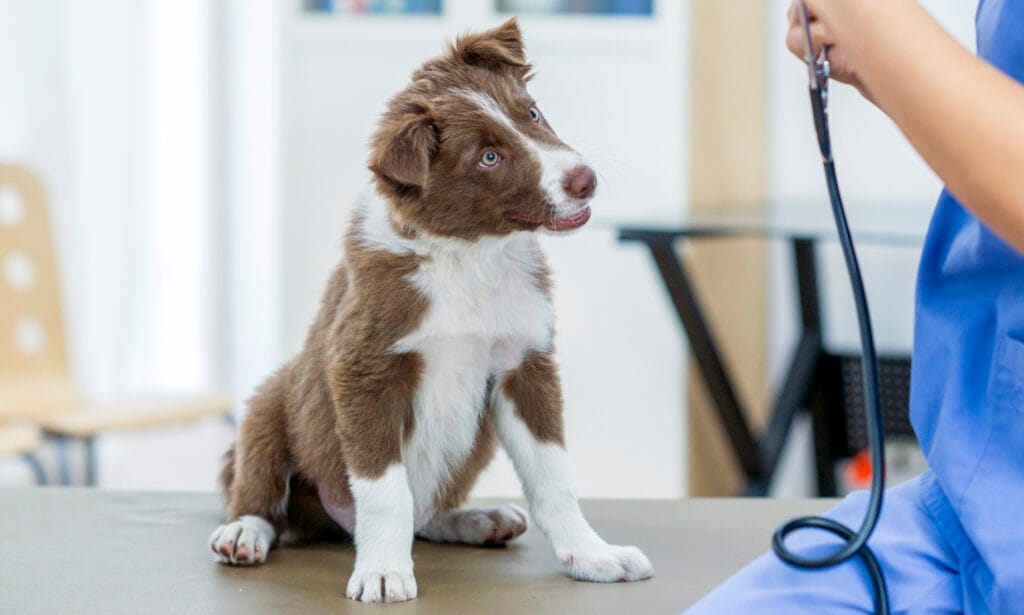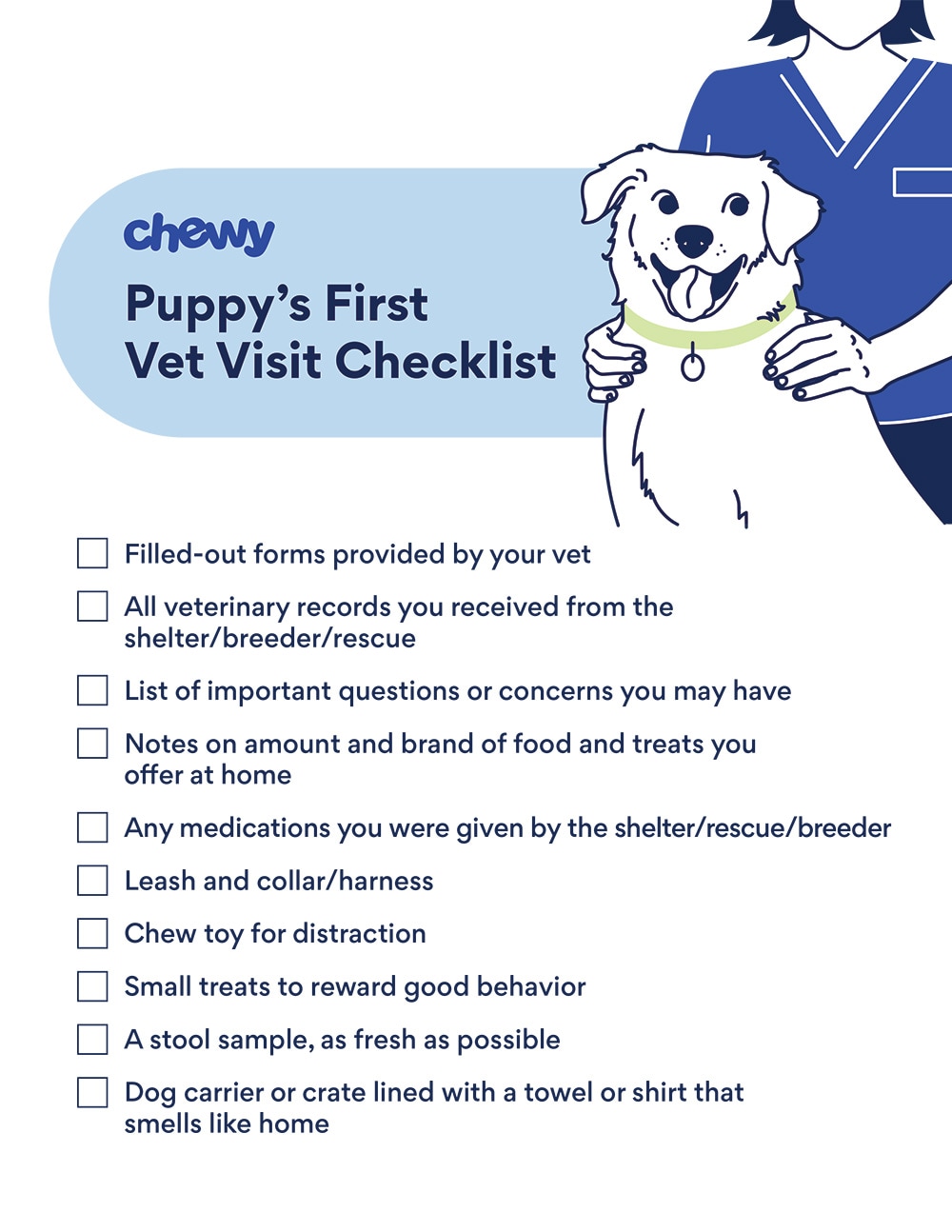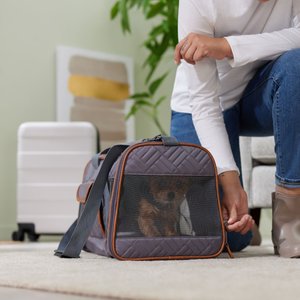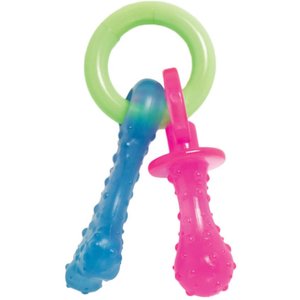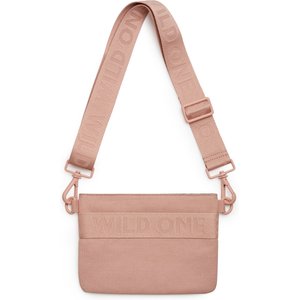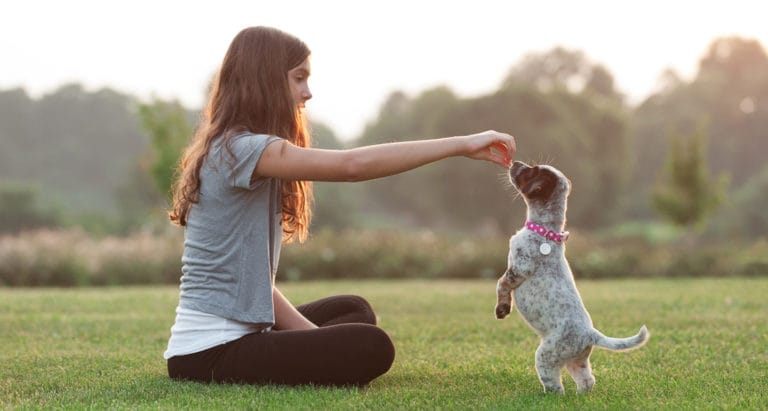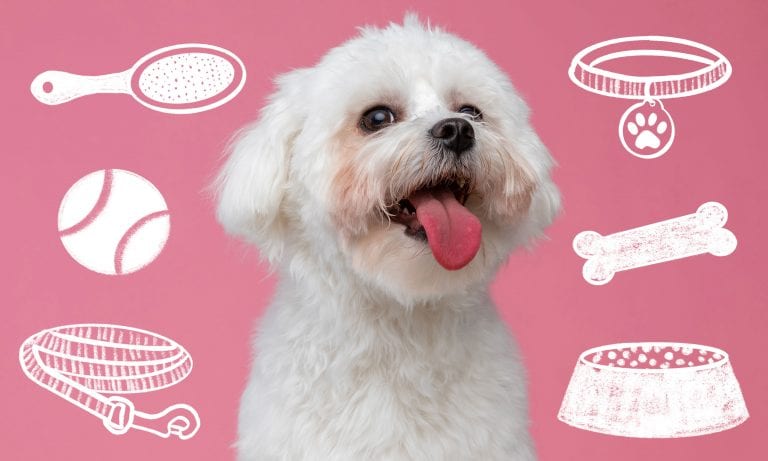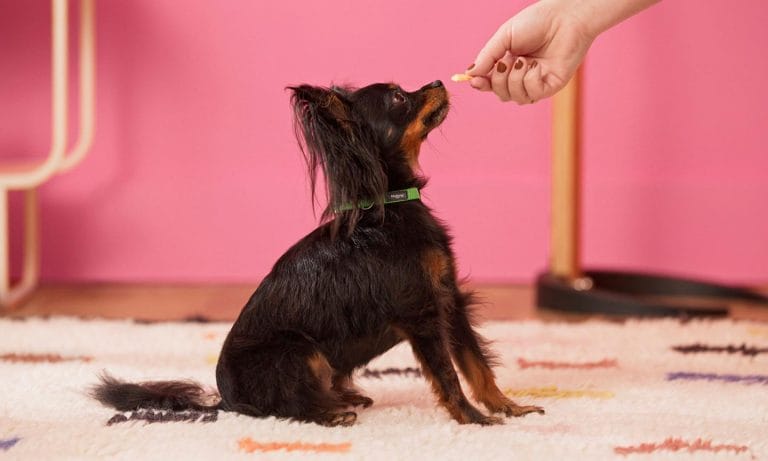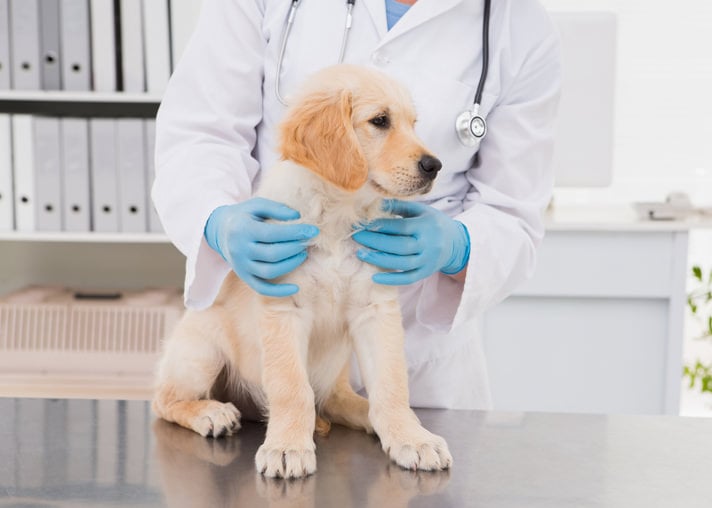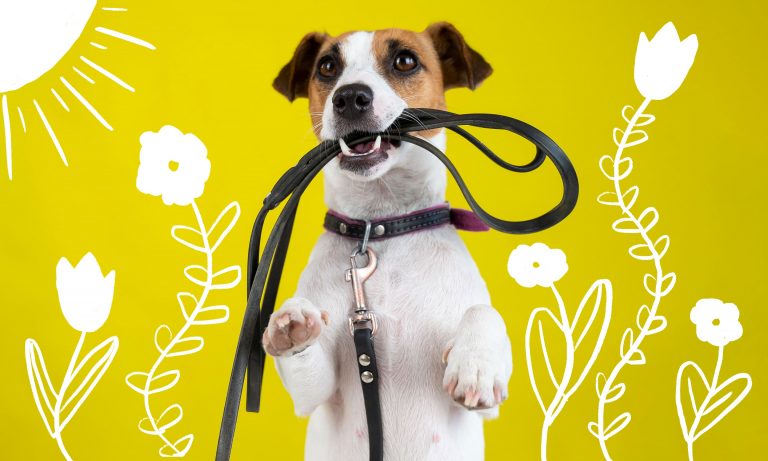So cute! So sweet! So… sick?
Puppies may act like they’re up for anything, but because of their immature immune systems, they’re quite susceptible to illness and injury. It’s absolutely vital that you schedule your puppy’s first vet visit within the first few days of bringing them home. Healthy puppies need to start on their preventative care so that they can stay healthy, and sick puppies need treatment before their condition becomes serious or even life-threatening.
If you’re the proud pet parent of a new puppy, here is what you should know about taking your puppy to their first vet visit.
When to Take a Puppy to the Vet for the First Time
Many dog shelters and breeders start vet visits for puppies before they release their little ones to new pet parents. You should receive paperwork that clearly states what type of care has already been provided, when that occurred, and when you should schedule your puppy’s next veterinary visit.
But regardless of what the shelter or breeder has already done, it is always a good idea to schedule a new puppy vet visit within a few days of picking up your new canine companion. This will allow the veterinarian to review your pup’s records and quickly provide any overdue care. The doctor will also perform a complete physical examination and perhaps run some laboratory tests to identify any potential health concerns. It’s best to learn about problems as soon as possible before any health guarantees the breeder provides expires.
A typical vet schedule for puppies is for appointments to occur every 3 to 4 weeks starting when puppies are 6 to 8 weeks old and ending when they are 4 or 5 months old. Most puppies start their vaccinations when they are 6 to 8 weeks old. Puppies who receive their first vaccinations when they are older than 4 or 5 months of age can usually be caught up in two visits scheduled 3 to 4 weeks apart. Your veterinarian may adjust this plan based on your puppy’s particular history and needs.
How to Prepare for Your Puppy’s First Vet Visit
Collect as much information as possible in the days before your puppy’s first vet visit. Has your puppy traveled from a different part of the country or world? Are you starting to notice behavioral problems as your pup settles in? Does your puppy have a good appetite with no vomiting or diarrhea? Is potty training proceeding as you expected?
While it is, of course, fine to answer a vet’s question with “I don’t know” (you can always call back with the answer), the more information you can provide during the appointment the better.
What to Bring to the Veterinarian Appointment
Collect everything you’ll need to bring with you for your puppy’s first vet visit.
Puppy’s First Vet Visit Checklist
What to Expect During Your Puppy’s First Vet Visit
Veterinary staff will start the visit by asking you a series of questions about your puppy’s history and how they are doing at home, followed by:
- A weight check
- Measuring body temperature and pulse and respiratory rates
- A complete physical examination, which includes
- Observing the puppy move around the exam room
- Looking at the whole body including the eyes, ears, nose, feet, nails, skin, coat and genitalia
- Opening the mouth to observe the teeth, gums and other structures
- Checking the eyes and ears with instruments that provide light and magnification
- Palpating (using hands to feel) the lymph nodes, joints and organs within the abdomen
- Using a stethoscope to listen to the heart and lungs
- Checking reflexes
If you didn’t bring a stool sample with you from home, your veterinarian may need to collect one to check for intestinal parasites. If your puppy is 6 months old or older, the doctor or veterinary technician may also draw a small sample of blood for heartworm testing. Other lab work is run on an as-needed basis.
Throughout all the new puppy vet visits, the veterinary staff will discuss many important aspects of dog care with you including:
- Exercise and play requirements
- Behavior and socialization
- Pet identification, including microchips and tags
- Reproductive health, including the benefits and risks of spaying and neutering
- Dental care
- Grooming needs
- Travel requirements
- Pet safety and disaster preparedness
- Nutrition
- Flea, tick, heartworm and internal parasite control
- Vaccination schedules
- Diseases that can be spread from pets to people (and vice versa)
Download our Puppy Vaccinations Tracker printable.
Questions to Ask the Veterinarian
Your veterinarian should provide you with all the information that you need to help your puppy thrive, but look over the topics listed above. If your veterinarian forgot to address something or the information they provided was confusing, don’t hesitate to ask for clarification.
Cost of a Puppy’s Vet Visit
Most of what happens during a puppy’s first vet visit is quite routine and therefore not very expensive. Veterinary costs vary based on where you live, but be prepared for something in the range of $75 to $100 per puppy visit. Call your veterinarian for a more precise estimate so there are no unpleasant surprises. Veterinary wellness plans, vaccine clinics and pet insurance can all help you keep your costs down or spread them out over time.
While vet costs for puppies may seem high, it’s money well-spent preventing potentially serious and expensive health problems from developing later. After all, to be happy, a dog must be healthy.
More about caring for your puppy:
Share:
